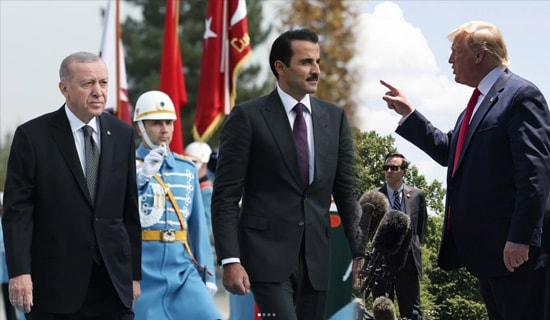In early July 2016, Israeli Prime Minister Benjamin Netanyahu visited Uganda, Rwanda, Kenya, and Ethiopia, and also met with the leaders of South Sudan, Tanzania, and Zambia. The visit, which began with a July 4 ceremony at Entebbe Airport marking the 40th anniversary of the Israeli hostage rescue operation, in which Netanyahu's brother Jonathan was killed, was aimed primarily at strengthening Israel's economic and political ties with Africa.
The visit elicited many responses in the Egyptian media, with most commentators expressing reservations and fears regarding its implications for Egypt, particularly regarding the sensitive issue of Egypt's Nile water quotas. On the other hand, businessman Salah Diab, owner of the Egyptian daily Al-Masri Al-Yawm, argued that such comments reflect "childish logic" and "wartime behavior during peacetime," and called on Egypt to cooperate with Israel's investments in Africa.
Following is a review of reactions in Egypt to Netanyahu's Africa visit:
Arab League Secretary-General: Israel-Africa Relations Cannot Come At The Expense Of The Palestinians
Newly elected Arab League Secretary-General and former Egyptian foreign minister Ahmed Aboul Gheit said that Arab relations with African nations are good and must not be negatively impacted by Netanyahu's visit. The visit, he said, was aimed at breaking Israel's international isolation, which stems from its ongoing occupation of Arab lands and from its racist actions. He added that Israel was attempting to market itself as a normal country that can help others on issues like security and growth, but expressed confidence that African nations that once fought for their freedom are fully cognizant of the meaning of occupation and colonialism. Reiterating the African Union's position on the Palestinian matter, he stated that he hoped that the countries visited by Netanyahu would not allow their relationship with Israel to come at the expense of their great and historic support for Palestinian rights.[1]
Sa'id Al-Lawandi, a researcher at the Al-Ahram Center for Political and Strategic Studies, told Al-Ghad TV that the visit was "questionable and undesirable." He argued that while Egypt has neglected relations with African nations until recent years, Israel, "the classic enemy of the entire Arab ummah," has been operating there for some time.[2]
Egyptian MP Hatem Bashat, chairman of the Egyptian parliament's African Affairs Committee and an official in the Free Egyptians Party, said that his committee would meet on July 17 with the foreign minister's African Affairs advisor and his team, at parliament headquarters, to discuss the Foreign Ministry's official response to Netanyahu's visit and what they called his dangerous and divisive statements. According to Bashat, Egypt should act on both the parliamentary and the Foreign Ministry level on the matter and the parliamentarians should seek a meeting on the issue with President Al-Sisi . He added that discussing Netanyahu's visit with African ambassadors in Egypt would not help, but Egypt had to tighten its relations with African nations in light of the current global competition.[3]
Fears That Netanyahu Visit Will Impact Intra-African Nile Water Dispute
Concerns in Egypt regarding Netanyahu's visit centered primarily on its potential implications for the sensitive intra-African dispute on the division of the Nile water. This issue has been a major concern in Egypt since Ethiopia's 2013 announcement that it was diverting the Nile in order to construct the Grand Ethiopian Renaissance hydroelectric dam, which would impact Egypt's guaranteed quota of Nile water. In 2014, Egyptian media featured many articles implying that Israel had encouraged the Ethiopians to construct the dam and was the chief benefactor of the move.[4] Following Netanyahu's visit, this issue is again in the headlines.
Ibrahim Youssri, a former aide to the Egyptian foreign minister, posted a Facebook status using the hashtags #Al-Nahda Dam [the Arabic name for the Grand Ethiopian Renaissance Dam] #Netanyahu, and #Egypt: "Netanyahu's provocative visit to the Nile Basin countries is meant to congratulate them on their policy of drying Egypt up, to which [Israel] incites. Are we still truly allies of the Zionists? ..."[5]

Egyptian MP Mustafa Bakri called for an urgent parliamentary session attended by the prime minister and the ministers of foreign affairs, water, and electricity and energy, to discuss Netanyahu's visit to the Nile Basin countries and the risks it poses to Egypt's Nile water quota and national security.[6]
In the official Egyptian daily Al-Ahram, Nabil Al-Sagini wrote that the Nile originates in the four countries visited by Netanyahu, and that this "confirms that the issue of the Nile water will be one of the main topics discussed during the Israeli prime minister's visit to Africa, in an attempt to realize Israel's historic dream of diverting the Nile water to the Negev desert... Suspicious Israeli movements in Africa come at the same time as intensive Egypt-Sudan-Ethiopia talks, and the presentation of the Al-Nahda Dam issue at the African Summit... and it is clear that [Israel] is working to thwart any potential agreement" between the three countries on the issue of the dam.[7]
Dr. Hazem Hosny, professor of economics and political science at Cairo University, warned that the visit was part of a plan to expand Israel "from the Nile to the Euphrates... since the Nile begins in Ethiopia. This visit is an expression... of an organized Zionist plan against Egypt [aimed at] controlling its water and food..."[8]

"Al-Sisi
gave Netanyahu [control of] the faucet" for the "Al-Nahda Dam"
(klmty.net, July 8, 2016)
'Al-Masri Al-Yawm' Owner To Opponents Of Netanyahu's Visit: It Is Time To Cooperate With Israel
A July 7, 2016 article in Al-Masri Al-Yawm by "Newton" (pen name of the paper's owner, Salah Diab), criticized the opponents of Netanyahu's Africa visit, and argued that the time has come to cooperate with Israel:
"[Some say:] 'I will allow Israel to achieve exclusivity in Africa, since we have a disagreement with it. I will let it invest in the Nile Basin since I hate Israel. Let us look from the side as it expands its joint projects with the African governments [since] I am already at odds with Netanyahu.' All these [comments] reflect childish thinking and nothing more. This is illogical behavior, wartime behavior during peacetime. Outdated clichés.
"No one in Africa wants to relinquish Egypt. Egypt cannot relinquish Africa and the Africans will never relinquish Israel or their own interests [merely] to play nice with the Arabs. They want us to work together and cooperate with anyone who invests in Africa. The Dark Continent suffers from many problems and Africans will not reject any hand extended to them, even Netanyahu's.
"This is the truth we should accept. This is reality and it is our duty to recognize it. Ever since Yitzhak Rabin's famous visit to Africa in 1987 [likely referring to his visit to South Africa], Israeli investments have been streaming into African countries, while we lived, and still do live, under the illusion that Africans would reject the hand that Israel extends. This has not happened, and will not happen. There is no escaping cooperation, because it is unthinkable for us to forgo our strategic interests in Africa, first and foremost the Nile.
"Yesterday, Al-Masri Al-Yawm ran, on its front page, an Anadolu News Agency report on [Turkish Prime Minister] Erdogan, who said: 'Yes to normalization and partnership with Israel; no to reconciliation with Egypt.' This was said by a man who wants to appoint himself leader of Sunni Muslims around the world, and sees no problem with partnership with Israel. Erdogan will be Netanyahu's partner in Dark Continent investments. He will enter Africa hand in hand with Israel...
"Today, after some 50 years of peace, and after [President Al-]Sisi's call for reconciliation between Arabs and Israel, this call cannot pass us by as if it never existed. It can change the face of the region in terms of economics, culture, science, and more... We must demand that Al-Sisi follow through [with this initiative] until it achieves its goals."[9]
Endnotes:
[1] Al-Ahram (Egypt), July 7, 2016.
[2] Al-Quds Al-Arabi (London), July 7, 2016.
[3] Al-Ahram (Egypt), July 10, 2016.
[4] See MEMRI Special Dispatch No. 5671, After Reaching A Dead End In Talks Over Grand Ethiopian Renaissance Dam, Egyptian Media Ponders Diplomatic, Military Alternatives In Nile Water Crisis, March 10, 2014.
[5] Facebook.com/Ibrahim.youssri, July 7, 2016.
[6] Al-Yawm Al-Sabi' (Egypt), July 7, 2016.
[7] Al-Ahram (Egypt), July 7, 2016.
[8] Rassd.com, July 7, 2016.
[9] Al-Masri Al-Yawm (Egypt), July 7, 2016.




.jpg)